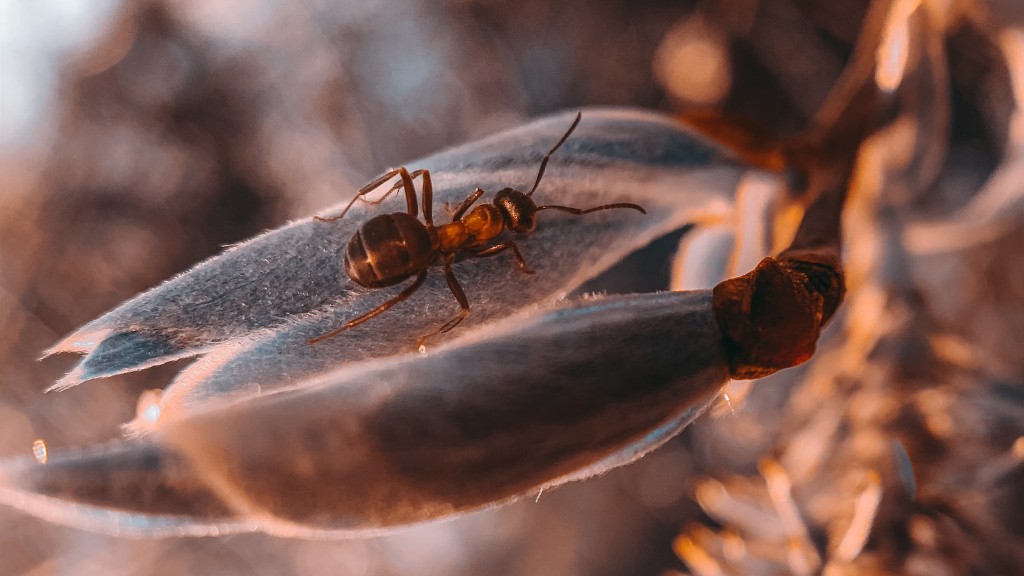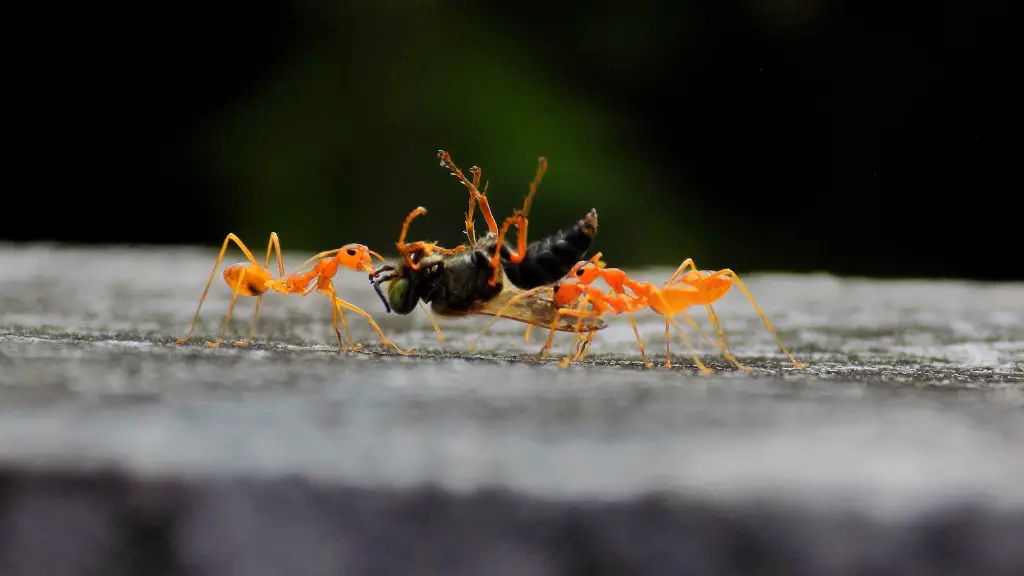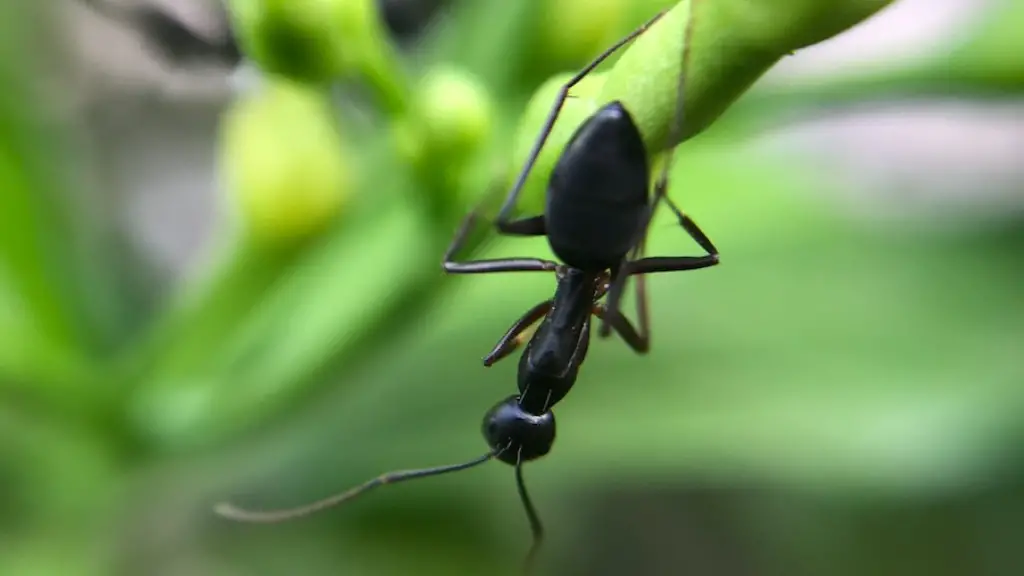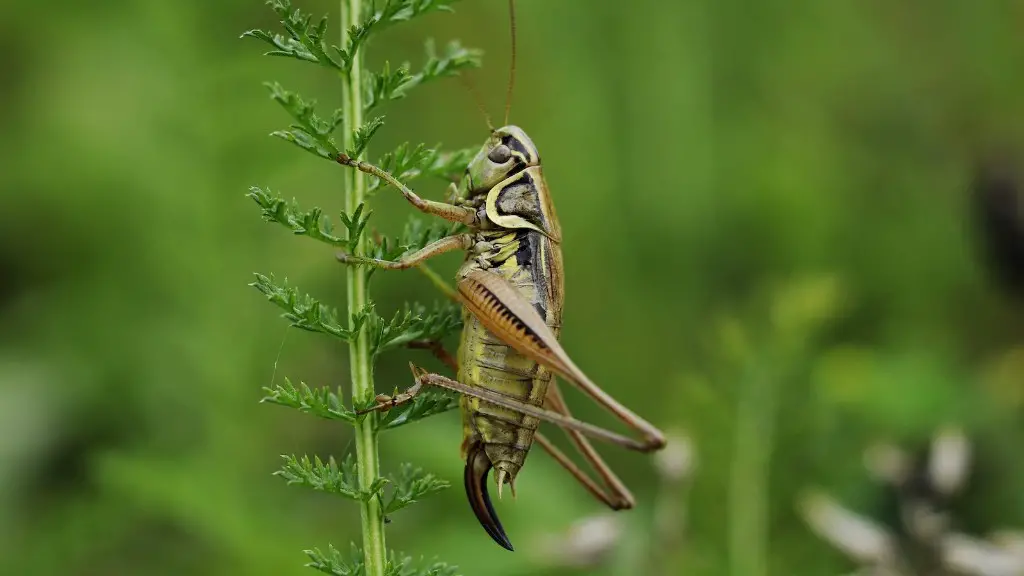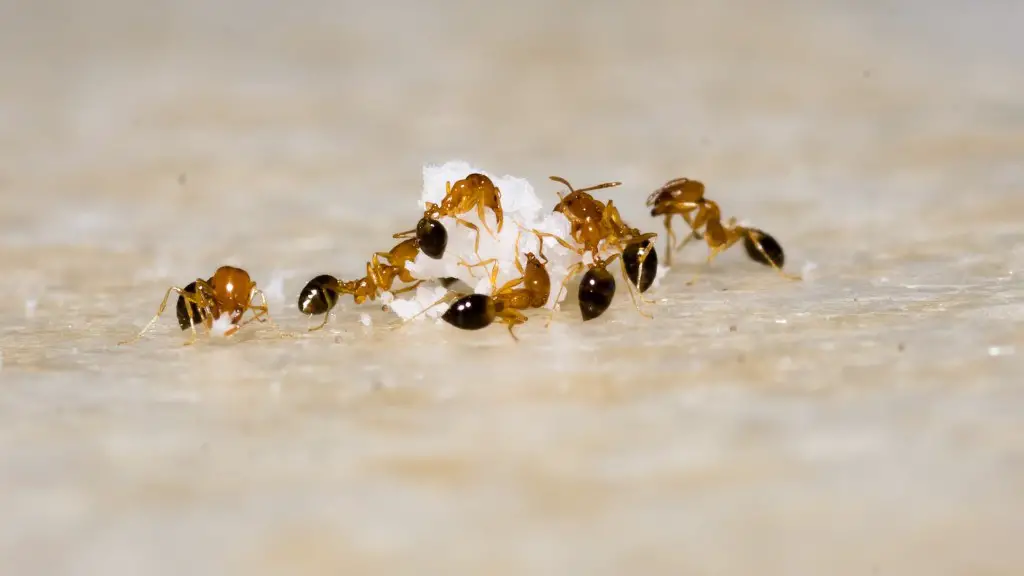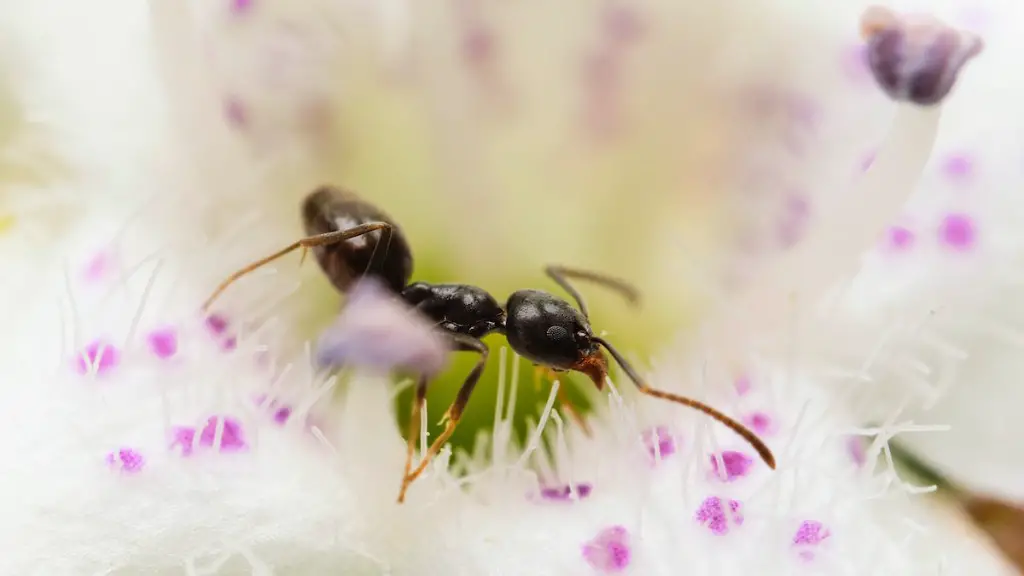Nurturing a Queen Ant
Queen ants are responsible for the sustenance of entire ant colonies, making them vital to their survival. Queen ants are born after an elaborate process which begins with the fertilization of young eggs by males. The gender of an ant is determined by the number of chromosomes in its genetic makeup. For the queen ant, the egg must contain two sets of chromosomes, making it a diploid egg. This allows for greater variation since it produces a hybrid genetic gene.
Queen ant eggs are placed in the innermost part of an ant colony in what is called a ‘brood chamber’. The chamber is kept cool and moist to preserve the eggs. The queen ant remains in the chamber during its development and is fed different types of food from its sisters in the colony. The food includes ant larvae and pupae as well as root and some other forms of vegetation.
Once the queen ant is hatched, it begins a long process of metamorphosis. During metamorphosis, special organs, cells and tissues develop in the queen ant’s body enabling it to fulfill its role as a reproducer of the colony. These organs include the ovaries, wings, and other reproductive structures.
Queen ants are born with a special pheromone which signals to its nestmates that it is the queen. This puts the focus of the colony on the queen where its tasks include laying eggs, defending the nest, and participating in other activities. It is also the queen’s job to maintain its colony by protecting it from predators, gathering food, and providing shelter.
When the queen ant finds suitable nesting grounds, it starts laying eggs and the eggs quickly become part of the larger colony. Ant colonies can reach several thousand workers, living together in harmony and working together as a single unit. The majority of ant species live in a discrete, self-contained colony with little or no external contact, allowing for a sharp division of labor and a strict caste system.
The new queen ant is fed royal food, special honey-like pheromones, to help the queen survive and to ensure that she has a strong immune system. The food consists of the same kind of food available to her workers but contains extra nutrients. These help the queen remain healthy, vigorous, and capable of producing a large number of eggs. It also makes her recognizable in her colony as the queen.
Once the queen ant has finished metamorphosis, she begins to mate with male drones. This is when the queen ant releases pheromones to attract the drones. The drones are attracted to the queen ant’s pheromones and mating takes place. The male drones will then die and the queen ant will lay fertilized eggs. The fertilized eggs will become the next generation of workers, soldiers, and queens.
Maintaining the Colony
The queen ant is responsible for maintaining the colony and ensuring the survival of her species. She does this by producing eggs that will hatch into workers, soldiers and future queens. This is an important job, as the queen and the colony depend on each other for success. Producing successful queens is the key to her species’ survival.
When the queen ant is born, she creates and stores sperm within her abdominal sac. The sperm is used to fertilize eggs, which are laid in the nest by the queen ant. These eggs will become the future workers, soldiers, and queens that will serve the colony. The queen ant not only has the task of producing healthy eggs but also needs to provide them with the ideal environment.
The queen ant must maintain conditions in the nest to ensure the eggs’ survival and to provide necessary nutrients. She does this by controlling temperatures and humidity, as well as providing high-quality food for the eggs. This is an important job as it plays an integral role in the health and development of the eggs.
In addition to providing the ideal environment for her eggs, a queen ant must ensure that the colony has enough workers by producing healthy eggs. Workers are responsible for the daily tasks in the colony such as gathering food, cleaning and defending the nest.
The queen ant is also responsible for producing healthy pheromones to ward off predators and attract new ants to the colony. Pheromones are special chemical messengers that allow ants to communicate. When a queen ant produces pheromones, it signals to its nestmates that it is the queen and will give instructions that are followed by the colony. It is an essential job for the queen.
The queen ant must also produce special pheromones that attract males for mating. Without these pheromones, the colony is unable to reproduce and will die out. The queen ant’s pheromones also determine the size of the colony, as larger queen ant colonies will produce more pheromones and attract more nests mates.
The Role of the Queen Ant
The role of a queen ant is to be the leader of the colony, providing direction, resources and stability. Queen ants have a surprisingly complex set of chores that they must take care of, which are vital to the survival of the colony.
Queen ants have a number of responsibilities. They must lay eggs, provide food to her young and defend the nest against predators. They must also produce the pheromones necessary to attract new workers and to ensure the colony’s survival.
Queen ants must also monitor the health of the colony and create new nests when needed. She is also responsible for finding suitable nesting grounds and deciding when to move her colony when it becomes overcrowded. This is an important job for the queen ant as it ensures that the colony is constantly growing and thriving.
The queen ant also plays a vital role in the development of young ants. She decides when to feed the young, when to move them and how to keep them safe from predators. The queen ant is also responsible for educating the young ants in the colony so that they can be productive members of the ant family.
The queen ant also serves as a guide and counselor to the colony, providing advice and direction when needed. In times of crisis, it is up to the queen ant to make sure that the colony is able to adapt and survive. This is an important job, as it ensures that the colony can continue to thrive and reproduce in the future.
The Benefits of a Queen Ant
As the leader of the colony, the queen ant brings many benefits to her followers. Queen ants are able to live longer and produce more eggs than other ants. This is important for the colony, as these eggs will become the next generation of workers, soldiers and queens.
The queen ant also plays an important role in protecting the colony from predators. She releases pheromones that act as a warning to predators, allowing them to stay away from the colony. The queen ant’s role in protecting the colony is invaluable, as it allows the colony to remain safe and secure.
Queen ants are also important for maintaining the social structure of the colony. As the leader of the colony, the queen ant is responsible for establishing order and structure, which is essential for the colony’s survival. Queen ants are in charge of decision-making and provide direction and guidance to the colony.
The queen ant’s role in the colony is also beneficial in terms of food. The queen ant has a special diet, which includes ant larvae and pupae as well as root and some other forms of vegetation. This helps the queen ant remain healthy and, in turn, helps her colony thrive. The queen ant’s diet is also an important source of protein for the colony, which is essential for the colony’s survival.
Queen ants also have an important job in keeping the colony balanced. Queen ants are responsible for creating and storing a special kind of sperm in her abdomen, which she uses to fertilize eggs. These eggs will become the new workers and queens in the colony, ensuring that the colony can continue to thrive.
Conclusion
Queen ants are vital to the survival of their colonies. From providing food and shelter to protecting the colony and educating the young ants, queen ants play an essential role in the success of their nest. The queen ant’s job is to ensure the colony’s survival and enable it to reproduce in the future, making it one of the most important jobs in the ant colony.
